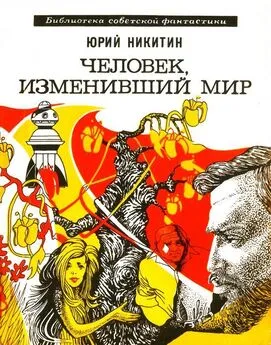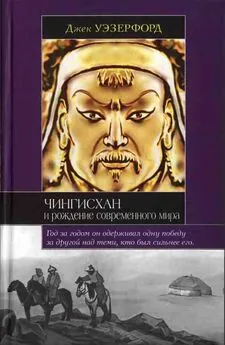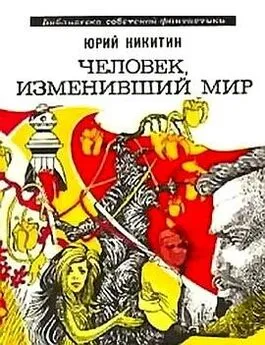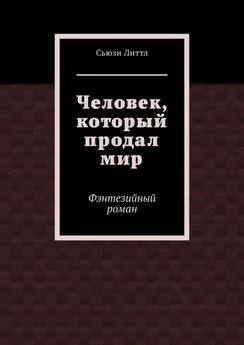Фрэнк Маклинн - Чингисхан. Человек, завоевавший мир
- Название:Чингисхан. Человек, завоевавший мир
- Автор:
- Жанр:
- Издательство:АСТ
- Год:2019
- Город:Москва
- ISBN:978-5-17-095186-4
- Рейтинг:
- Избранное:Добавить в избранное
-
Отзывы:
-
Ваша оценка:
Фрэнк Маклинн - Чингисхан. Человек, завоевавший мир краткое содержание
Чингисхан. Человек, завоевавший мир - читать онлайн бесплатно ознакомительный отрывок
Интервал:
Закладка:
157
RT I p. 130; Pelliot & Hambis, Campagnes pp. 132–133; Grousset, Empire p. 198. Ambaghai was taking his daughter to marry into the Ayiru'ut Buiru'ut sept, one of the subtribes of the Tartars. It is interesting that the practice of exogamy was so deeply ingrained with the Mongols that the Tayichiud would consider a match with the Tartars, their greatest enemies (Vladimirtsov, Le regime social pp. 58–59). Another version of the ambush is that it was not the intended bridegroom and family who betrayed him, but Tartar mercenaries (juyin) employed as gendarmes by the Jin who set the ambuscade (Rachewiltz, Commentary pp. 300–301).
158
Grousset, Empire pp. 194, 200.
159
Erdmann, Temudschin (1862) pp. 194–230.
160
Другое название — «Сокровенное сказание». См. примечание к заметке «От автора». В переводе сохраняется название автора «Тайная история», поскольку в английском и русском вариантах имеются расхождения.
161
Vladimirtsov, Le regime social pp. 89–92.
162
Воанергес — «сыновья грома» — прозвище, данное Иисусом сыновьям Зеведея — Иоанну и Иакову за их силу, страстность, горячность. — Прим. ред .
163
d'Ohsson, Histoire I p. 33.
164
RT I pp. 130–131.
165
Ratchnevsky, Genghis Khan p. 12; Barfield, Perilous Frontier p. 184.
166
RT I p. 132; SHC pp. 11–13.
167
Rachewiltz, Commentary p. 320.
168
Gumilev, Imaginary Kingdom p. 140.
169
Vladimirtsov; Life of Genghis p. 12; Ratchnevsky, Genghis Khan pp. 15–16; Olbricht 8 Pinks, Meng-tapei-lup. 3.
170
SHO pp. 127–128; SHR pp. 74–75; Togan, Flexibility pp. 68–69.
171
SHO pp. 127–128; SHR pp. 74–75; Togan, Flexibility pp. 69–70.
172
The Tanguts had an unfortunate habit of supporting all the losers on the steppes (Khazanov, Nomads pp. 234–236).
173
Togan, Flexibility pp. 70–72.
174
K. Uray-Kohalmi, 'Siberische Parallelen zur Ethnographie der geheimen Geschichte der Mongolen,' in Ligeti, Mongolian Studies pp. 247–264 (at pp. 262–263).
175
L. V Clark, 'The Theme of Revenge in the Secret History of the Mongols,' in Clark & Draghi, Aspects of Altaic Civilization рр. 33–57; Clark, 'From the Legendary Cycle of Cinggis-gayan: The Story of an Encounter with 300 Yayichiud from the Allan Tobci,' Mongolian Studies 5 (1979) рр. 5–39 (at pp. 37–38).
176
RT I p. 134; SHC pp. 11–13.
177
Rachewiltz says that the name of this earlier wife 'cannot be determined despite many scholarly efforts' (Rachewiltz, Commentary p. 313). Ratchnevsky, however, (Genghis Khan pp. 15–16, 224) is adamant that her name was Suchigu or Suchikel, sometimes referred to as Ko'agchin.
178
Унгираты — также хонгираты, хунгираты, кунграты, конгираты, онгираты. — Прим. пер .
179
For the Ongirrad subclan as Hoelun's home see Pelliot & Hambis, Campagnes pp. 402–409; Vladimirtsov Le regime social pp. 58–59. The Buriyat have generated a considerable literature. See Lattimore, Mongols of Manchuria p. 61; Atwood, Encyclopedia p. 61; Eric Haenisch, Die Geheime Geschichte p. 112; Elena Skubuik, 'Buryat,' in Hahnunen, Mongolian Languages pp. 102–128; Lincoln, Conquest pp. 51–52; West, Encyclopedia (2009) pp. 132–133. Travellers' tales on the Buriyat include Sharon Hudgins, 'Feasting with the Buriats of Southern Siberia,' in Walker, Food on the Move pp. 136–156; Curtin, A Journey; Matthiessen, Baikal.
180
Rashid's date of 1155 was followed by the early twentieth-century Russian historians Vladimirtsov and Barthold. Pelliot, always a contrarian, proposes the impossibly late date of 1167 (Pelliot, Notes sur Marco Polo I pp. 281–288). But the best authorities such as Rachewiltz and Ratchnevsky plump for 1162. See the detailed argumentation in Ratchnevsky, Genghis Khan pp. 17–19; Rachewiltz, Commentary pp. 320–321.
181
Rachewiltz, Commentary pp. 269, 272, 322–324.
182
SHC p. 14; Pelliot, Notes sur Marco Polo I pp. 288–289; Dunnell, Chinggis Khan p. 21 remarks that this was apt for a child of destiny.
183
Rachewiltz, Commentary p. 322.
184
RT I p. 135; Pelliot & Hambis, Campagnes pp. 171–175.
185
RT I p. 106; Gumilev, Imaginary Kingdom p. 142. For the game of knucklebones they played see Jean-Paul Roux, 'A propos des osselets de Gengis Khan,' in Heissig et al, Tractata Altaica pp. 557–568. Cf also F. N. David, Games, Gods and Gambling p. 2.
186
Vladimirtsov Le regime social op. cit. p. 76; Pelliot & Hambis, Campagnes p. 232; Wittfogel & Feng, Liao p. 239.
187
Ratchnevsky, 'La condition de la femme mongole au 12/13е siecle,' in Heissig et al, Tractata Altaica pp. 509–530.
188
Togan, 'The Qongrat in History/ in-Pfeiffer & Quinn, History and Historiography pp. 61–83; Pelliot & Hambis, Campagnes pp. 393, 402–405; Wittfogel & Feng, Liao pp. 92, 634.
189
SHC p. 15; SHW p. 243; Pelliot & Hambis, Campagnes pp. 423–429.
190
Togan, 'The Qongrat in History/ p. 74.
191
Henry Serruys, 'Two Remarkable Women in Mongolia,' Asia Major 19 (1957) pp. 191–245.
192
Mostaert, Sur quelques passages pp. 10–12.
193
SHC p. 17.
194
Riasanovsky, Fundamental Principles p. 239.
195
Zhao, Marriage as Political Strategy p. 4.
196
SHR p. 14; Ratchnevsky, Genghis Khan p. 14. Dai Sechen's dream was full of symbolism, especially as regards shading, since white was regarded as a lucky colour by the Mongols (Rachewiltz, Commentary p. 328).
197
Togan, Flexibility pp. 121–125.
198
L. V Clark, 'The Theme of Revenge,' pp. 33–57.
199
SHC p. 18.
200
Silvestre de Sacy, Chrestomathie arabe II p. 162.
201
В «Сокровенном сказании» эти слова произносит один из предводителей тайджиутов, откочевавших и бросивших Оэлун с детьми (§ 72). — Прим. пер.
202
Ratchnevsky, Genghis Khan p. 22.
203
Отсутствующие всегда неправы ( фр .).
204
Rachewiltz, Commentary p. 344.
205
RT I p. 133.
206
Ratchnevsky, Genghis Khan p. 22.
207
May, Mongol Conquests p. 266.
208
SHC p. 22; Ratchnevsky, Genghis Khan pp. 20, 24.
209
Rachewiltz, Commentary pp. 346–347.
210
RT I p. 138.
211
Pelliot & Hambis, Campagnes pp. 185–187.
212
Roux, La mort pp. 92–96.
213
SHC pp. 23–24.
214
SHC p. 25; SHR pp. 23–24.
215
Ratchnevsky, Genghis Khan pp. 25–26.
216
RT I pp. 93–94; SHC pp. 25–26.
217
SHC pp. 27–28; SHO pp. 70–71.
218
Ratchnevsky, Genghis Khan p. 26.
219
SHC p. 29; SHO p. 73.
220
SHO pp. 73–74; SHR pp. 26–27.
221
SHO p. 75; SHW p. 252.
222
SHC pp. 30–31.
223
SHO pp. 75–76. For the subsequent career of Bo'orchu, who seems to have died in 1227, roughly the same time as Genghis himself, see Pelliot & Hambis, Campagnes pp. 342–360.
224
Riasanovsky, Fundamental Principles p. 90.
225
Pelliot & Hambis, Campagnes pp. 411–414; Vladimirtsov, Le regime social pp. 58–59.
226
RT I pp. 80–89.
227
Krader, Social Organization pp. 39, 89 is the source for this. In the kind of language beloved of academic anthropologists he tells us that Temujin's marriage was an example of matrilateral cross-cousin marriage (ibid, p. 344).
228
Rachewiltz, Commentary pp. 391–392.
229
RT I p. 93.
230
SHO pp. 79–81; SHR pp. 31–32; SHW p. 256.
231
Ratchnevsky, Genghis Khan p. 34.
232
JB I pp. 187–188; Boyle, Successors p. 31.
233
SHC pp. 34–38.
234
Gumilev, Imaginary Kingdom p. 143. On the other hand, it has been argued strongly that the Merkit raid is not historical but a folkloric trope, a perennial motif in epic poetry about the theft of women, whether of Europa by Zeus, Helen by Paris or the Princess Sita's seizure in the Hindu epic Ramayana. The raid is one of the prime exhibits in H. Okada, 'The Secret History of the Mongols, a Pseudo-historical Novel, Journal of Asian and African Studies 5 (1972) pp. 61–67 (at р. 63). But the theory is unconvincing if only because it makes Chagatai's later violent hostility to Jochi on the grounds of his illegitimacy impossible to fathom.
235
Togan, Flexibility p. 73; Pelliot & Hambis, Campagnes pp. 250, 401.
236
Mostaert, Sur quelques passages p. 32.
237
Pelliot & Hambis, Campagnes pp. 279–281; Rachewiltz, Commentary p. 421.
238
SHC pp. 38–39.
239
SHO pp. 91–92; SHR p. 41; Rachewiltz, Commentary p. 428.
240
SHC pp. 43–47. As Ratchnevsky tersely comments: 'Rashid's version is implausible' (Genghis Khan p. 35).
241
SHC pp. 39–42.
242
RT I p. 107.
243
Неожиданная развязка, сенсация, трюк ( фр .).
Читать дальшеИнтервал:
Закладка:
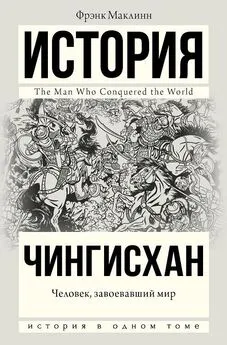


![Ксения Чепикова - Человек, научивший мир читать [История Великой информационной революции]](/books/1059757/kseniya-chepikova-chelovek-nauchivshij-mir-chitat-ist.webp)
